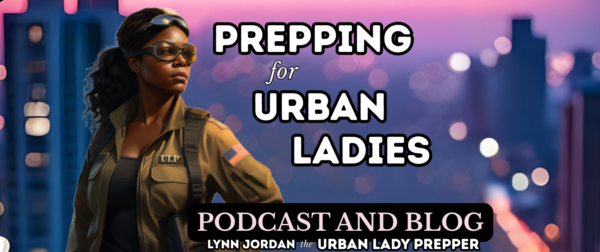(10 minute read)
I wanted to expand on the previous blog because I believe there is more that I can suggest regarding this subject.
Close those blinds and drapes at night! One thing that makes me crazy are SMSFs who leave their blinds or drapes open at night so strangers can see inside and determine what you’ve got and whether or not you are alone. CLOSE THEM. True crime fans, how many stories have we come across where a female victim was confirmed to be alone because the perpetrator could see inside her home thanks to raised blinds and open drapes? During the day, it may not be as easy to see unless up close, but at night, with the lights on, anyone can see in, who is there, what you have on, and what you’re doing. There is NO REASON to keep them open at night. Once dusk hits, CLOSE THEM!
Get a couple of light timers. A light inside at night is a deterrent because it is unclear if someone is home. Most burglars are not looking for a confrontation with homeowners; they want to rob the place and leave. A dark house indicates no one is home or home yet, and they have an opportunity to break in. Set one timer in the front of the home and one in the back to come on at dusk (but not simultaneously). There are models now that turn on and off at different times, so it’s not obvious that the light is on a timer. So one night, the light may come on at 6; another night at 6:15. Since you have your blinds down, outsiders can see a light on but can’t see inside. Remember, a burglar wants the path of least resistance and would rather move on to another target.
Lock your car doors! Regardless of how safe your neighborhood may be, if you have to travel to work every day, LOCK YOUR CAR. If someone hones in on your schedule and notices you leave your car unlocked, they can easily get in and wait for you or, if you’re lucky, just steal things out of your car. You also don’t want them to think that since they can get into your car easily, maybe you are just as lax about keeping your home locked down. Don’t make things easy for a criminal. They want something or someone that will be easy to breach or overtake. Don’t let them think it’s you!
It’s better to be locked out than to have an easily found spare key. If you don’t have a doghouse with a guard dog in it, there are very few places to hide a spare key that won’t be found. If you’re afraid of being locked out or your kids are always forgetting their key, leave the spare with a neighbor or a nearby relative, keep an extra set of keys in a safe place at work, anywhere BUT under the mat, on top of the door, or in one of those super-fake rocks. They will be found, and if someone is casing you out, you don’t know who saw them get taken out of or put in the hiding place. Don’t allow anyone to surprise you because they let themselves in with YOUR key!
If your garage has a window, lock the door into the house. Many of us don’t lock the door from the garage into the house for convenience, and we want access in case we lose or forget our key. We believe the garage door provides safety, and it does. But if you have a window in your garage, it just negates the security the garage door gave you. All a criminal has to do is break into the garage window, and if you leave the door to the house unlocked, he has instant access.
Be consistent and observant about what’s inside and outside your home. This is especially important if you’re renting and have a creepy landlord. Cameras are getting smaller and are easier to hide. Enter ‘tiny cameras” into the Amazon search bar and see how fast “…for spying” comes up! But if you consistently leave things a certain way every time, you will notice if something has been changed. It can be as simple as noticing if objects have been moved, like a plant or light fixture. Note how you store your clothes so you can tell if someone has been poking around and if items are missing. A retired cop friend said he even turns the little screws in the light switch plates the same way, so if one is different – or missing (and possibly replaced with a camera) – he would notice. If you feel the landlord is sneaking in while you’re at work, you can put up a camera to see if your suspicions are correct, and you don’t have to be covert about it. If they see the camera, they may just leave. And that’s what you want. If they question you, you can tell it’s to film any intruders and note their reaction. Remember, it is their property, but that does NOT give them the right to creep around the place and your things without notice or reason and make you feel unsafe in a home you pay rent to stay in!
It’s not about being paranoid—it’s about maintaining privacy and safety. When you get home, closing (and locking) the door behind you, you want to relax and not second-guess whether you, your kids, and your pets are safe.
A few years back, there was a TV show named Code Monkeys. It was an animated series done purposely in old-school 8-bit style. One of the characters, Bob “Big” T. Larrity, was a jerk, but he often said one thing that stuck with me—“always keep ‘em guessing.”
Yep.
The less a stranger knows about you, your capabilities, your whereabouts, what you have, and your schedule, the better. Predators like victims with a routine who are lax about their home’s security. Obviously, if you have a job you travel to daily, there isn’t much you can do about that (there is something you can do to be harder to track, but we’ll get to that in the next blog). Remember that it doesn’t have to be some random dude casing the neighborhood; it could be a current neighbor who is a little too nosey or that guy a couple of houses down that makes you uncomfortable. Maybe it’s one of their kids or one of their frequent visitors. You don’t want someone who is not family or a friend to tell you they know when you go where.
I once had a nice neighbor, but she knew way too much about everyone’s business and was too happy to share it with me. That told me two things—she was nosey and a gossip. If she knew that much about them, how much would she try to find out about me and share that info with someone I don’t know?
As women, we are taught to be polite, and because we tend to be proud of the good things in our lives, we often overshare. When someone asks something they shouldn’t about us, we tend to laugh, try to brush it off, and then get backed into a corner when pressed. This is because most of us were taught to smile and answer rather than reply we don’t want to discuss it, it’s none of their business, or that the word “no” is a complete sentence.
Don’t be an open book, especially with people who want to know everything about you, without giving up the same information when you ask for it. You don’t owe a stranger anything but the bare minimum of information, and even that depends on the situation. Treat your conversations with people you don’t know or don’t know well like courtroom exchanges—answer directly, and don’t embellish. Otherwise, you give more information than necessary to someone who doesn’t need it and may use it against you later.
You may think this is unrelated to prepping, but it is. Should an extreme event happen, if you kept your business off the street, no one will know who may be regularly staying with you, whether or not you have food, water, weapons, etc., and that’s what you want. No one but your Disaster Team—if you have one—should know that about you. It will keep strangers and semi-strangers from seeking you out, especially if they haven’t prepared and looking to take advantage of those who have. Unfortunately, because we are women, we would be seen as easier prey if it is believed we have something someone else needs. Don’t let them know you have it; lucky for us, they generally won’t expect us to.
Good. Always keep ‘em guessing!
Next: Tips for Being Safer When Not at Home



Pingback: Beyond Your Door: Practical Strategies for Everyday Safety, Pt. 2 - urbanladyprepper.com